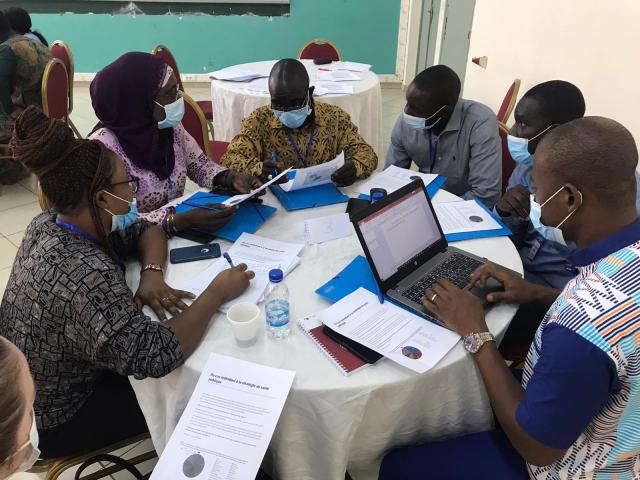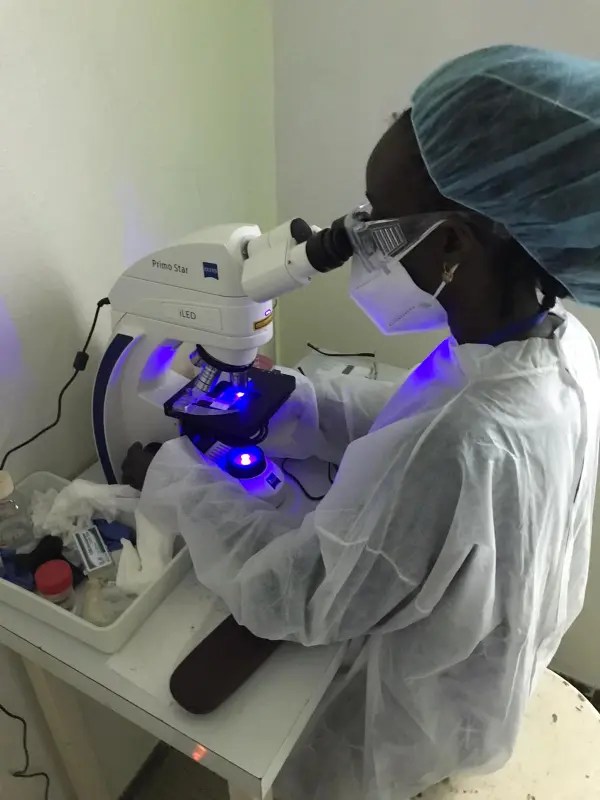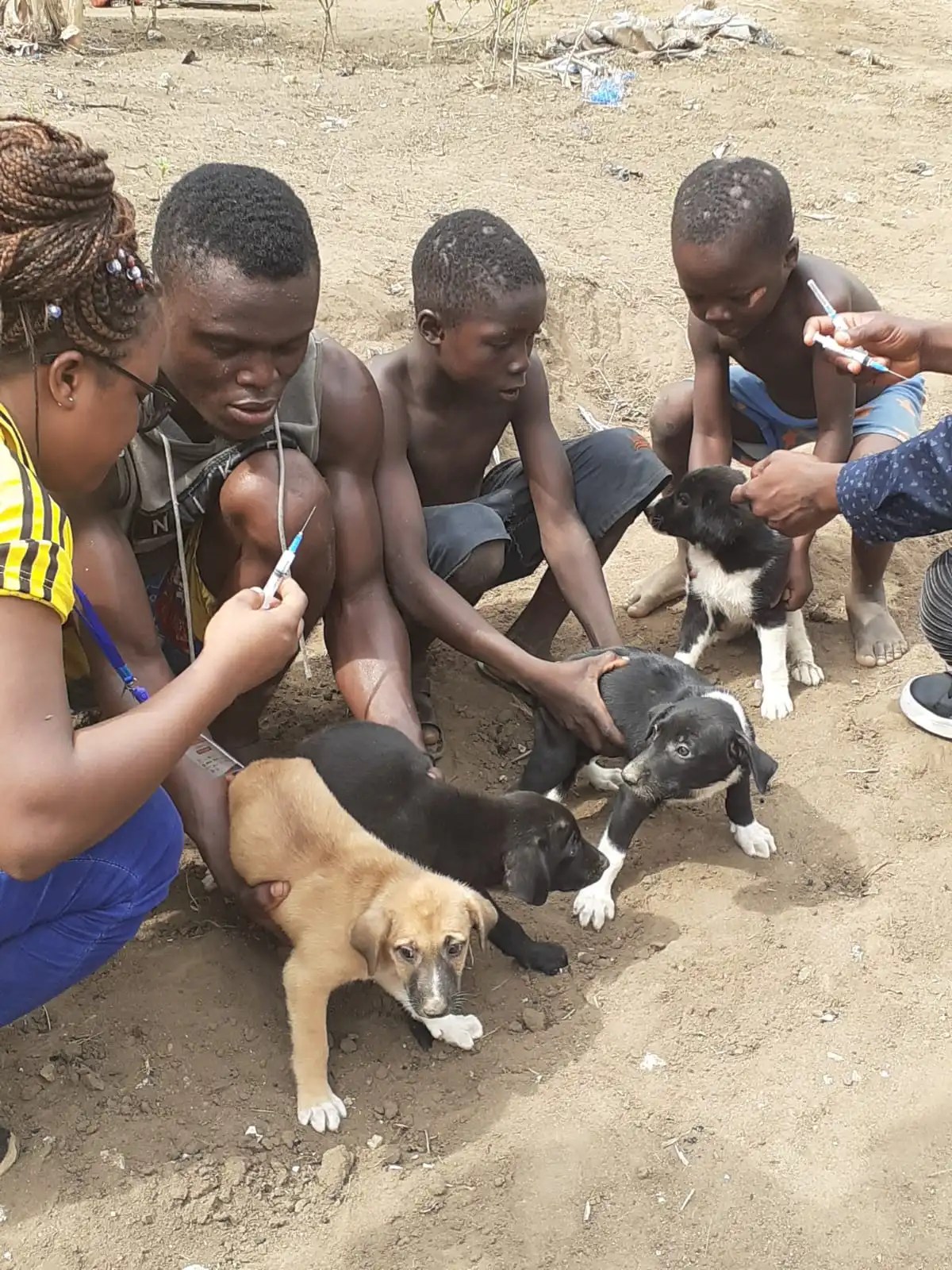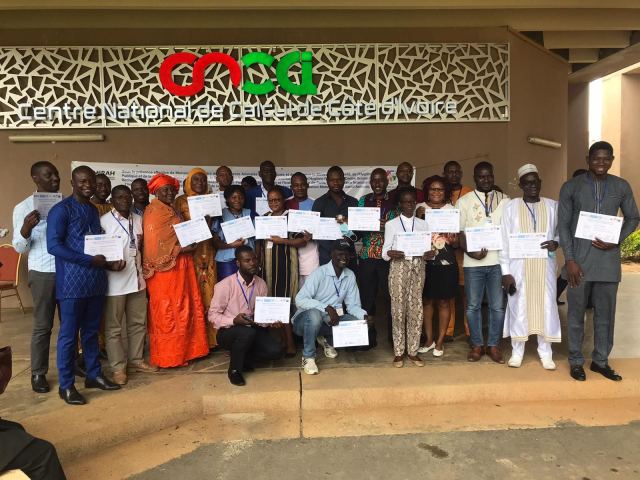Home \ Knowledge Hub \ Articles \ Partnering towards rabies elimination in West Africa


25 May 2022
Partnering towards rabies elimination in West Africa
SHARE

MARTA NOWAK
Marketing Lead, International Veterinary Health
“Collaboration is one of the main elements needed to achieve rabies elimination,” says John Atkinson, Associate Director International Veterinary Health, “and this was highlighted recently as a range of partners came together to organise, support and facilitate an international rabies training course in West Africa. “
This 11-day course was organized by the Pasteur Institute in Paris and the Pasteur Institute of Côte d’Ivoire, the National Institute of Public Hygiene in Côte d’Ivoire, the Directorate of Veterinary Services of Côte d’Ivoire, in collaboration with the University of Sciences, Techniques and Technologies of Bamako in Mali, the Central Veterinary Laboratory in Mali, the Swiss Centre for Scientific Research in Côte d’Ivoire and the Swiss Tropical and Public Health Institute, with the support of the World Health Organization (WHO), the World Organization for Animal Health (OIE), the Pasteur Network, the Department of Biochemistry of the University of Lausanne, the Health Sciences eTraining Foundation (HSeT), the University of Glasgow, and in collaboration with the Food and Agriculture Organization of the United Nations (FAO) and the Global Alliance for Rabies Control (GARC).

The rabies surveillance and control training course took place in April 2022 and was for professionals involved in rabies control in West Africa as part of ongoing efforts to strengthen the disease control capacity in the region.
The event was a great success with participants from 8 countries (Côte d’Ivoire, Mali, Burkina Faso, Niger, Senegal, Tchad, Rwanda, Togo) graduating from the course. The training emphasized the need for a multidisciplinary approach and intersectoral cooperation. The trainees engaged in various activities to help acquire new knowledge and skills which will be indispensable for success of the future rabies control programmes in their respective countries.
The course was designed to provide theoretical as well as practical training for students and professionals from both human and animal health sectors. The learning objectives included the use of epidemiologic data, promotion of dog vaccination in rabies control, developing strategic plans and raising awareness of rabies within the West African context, in line with the One Health approach.


The program comprised online pre-work followed by an 11-day practical session in Côte d’Ivoire with field activities and lab work covering a variety of topics, including surveillance, canine rabies control as well as management of rabies in humans, awareness, community engagement and modeling.
Participants learned through a range of activities e.g. virological diagnosis, planning of vaccination campaigns, data analysis, discussions with experts and more. A combination of group work, writing assignments and application in the field was an excellent way to develop the skills related to the program objectives, and help advance the future implementation of integrated rabies control across West Africa.

In sponsoring this West Africa training course, MSD Animal Health was proud to continue supporting the training of rabies control professionals, having also sponsored the North Africa Surveillance and Control of Rabies training course in Morocco 2019.
Find out more about how networks of rabies champions are being built around the world with this “Focus On…” article by Perrine Parize from Institut Pasteur.
MARTA NOWAK
Marketing Lead, International Veterinary Health
Image credits: Institut Pasteur

